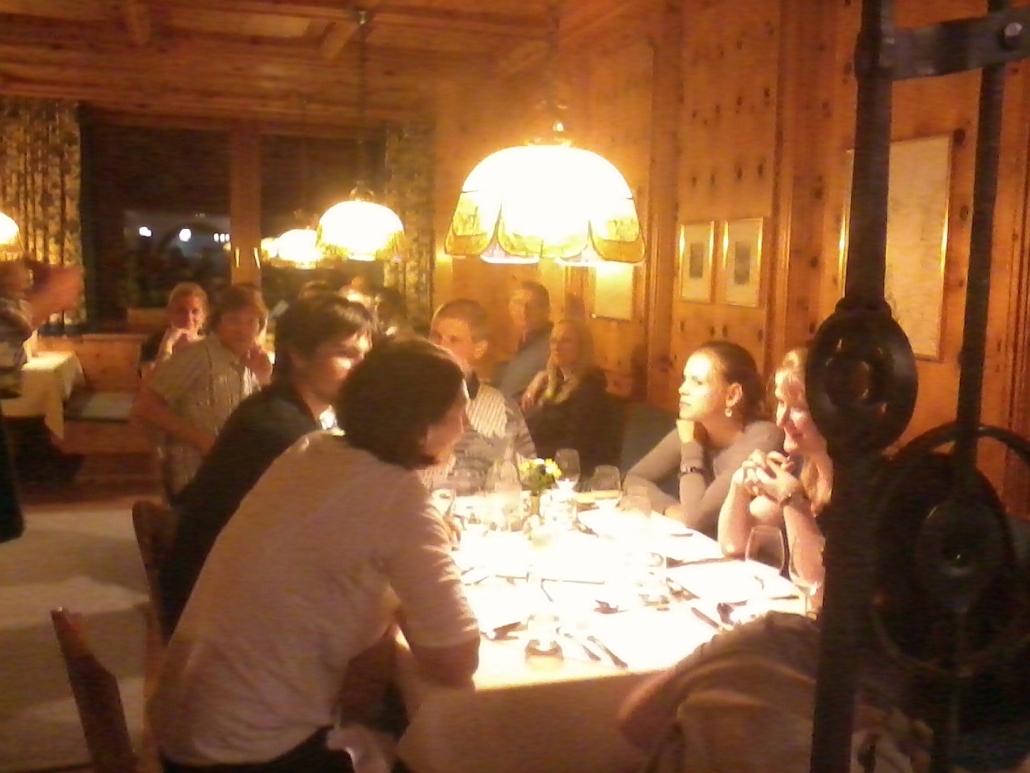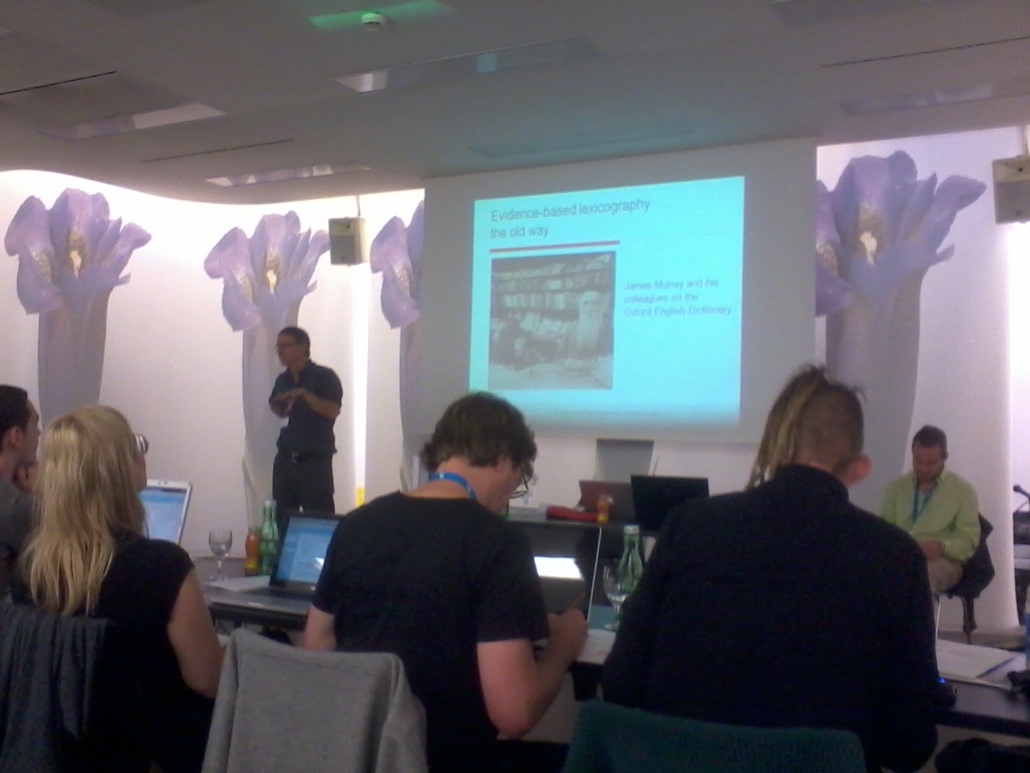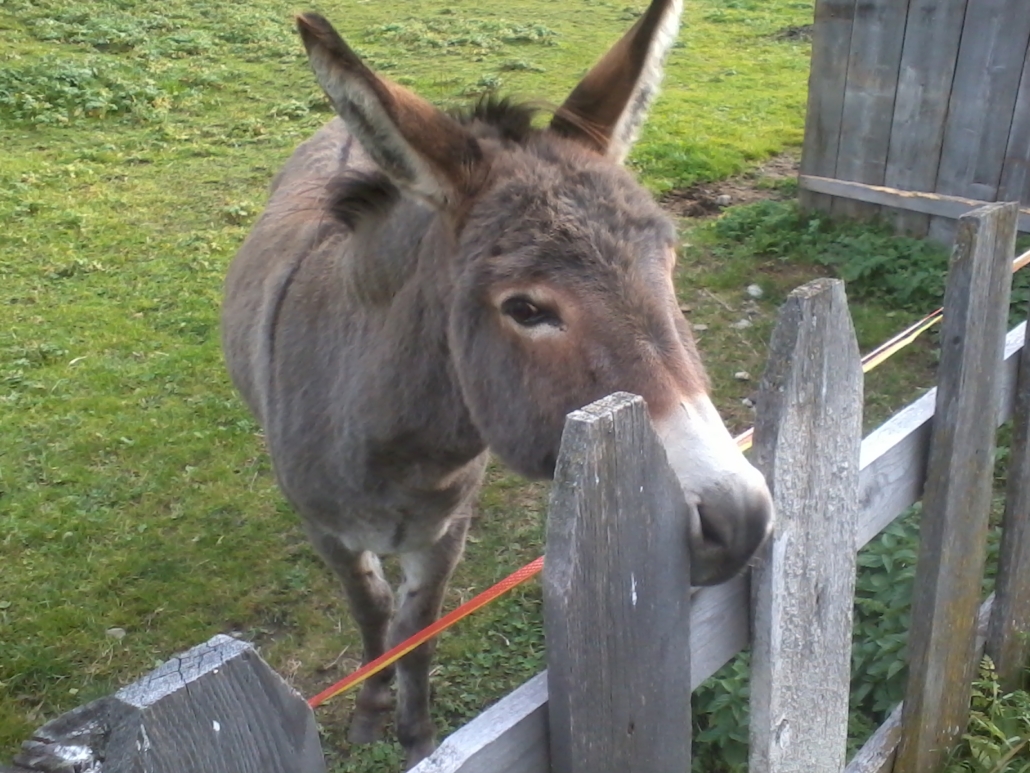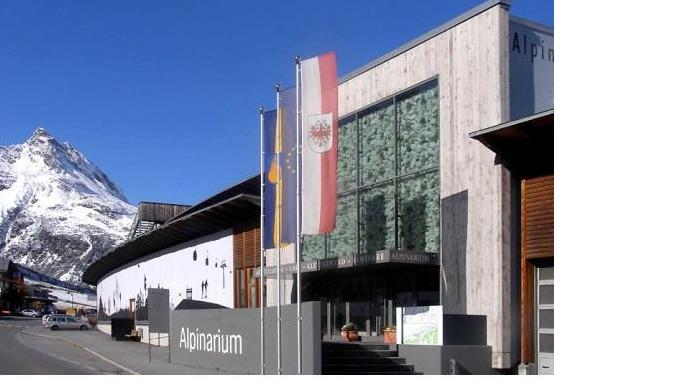Practical lexicography in the Austrian Alps… not for the fainthearted!
A personal view: Luisa Bozzo
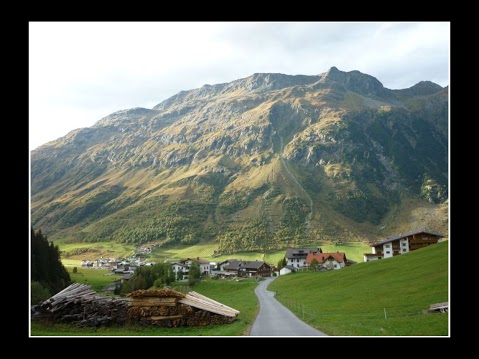 What do mountains and lexicographers have in common? At first sight, not much – granite resilience, perhaps, or the shapes of their backsides especially after the latter’s aeons spentwordcrunching at their PCs… Well, from 24 to 28 September 2012 they had the opportunity to share a lot. It all happened against the beautiful backdrop of Galtür, a charming village of tidy and trim little chalets surrounded by steep peaks in South Tirol, where a bunch of word fanatics (in the good sense) assembled to participate in a very intensive one-week training workshop in lexicography and lexical computing. Lexical Computing and Lexicography MasterClass were the main organizers of the event, together with the Austrian Academy of Sciences and the invaluable help of the local coordinator, Eveline Wandl-Vogt of the Institut für Österreichische Dialekt- und Namenlexika. The sponsors for the workshop were Erlandsen Media Publishing, the Alpinarium Galtür, Silvretta Seilbahn AG Ischgl and Tirol Convention Bureau. The main lecturers were Adam Kilgarriff and Michael Rundell, towering authorities in the subject fields of, respectively, computational linguistics and lexicography, who often co-operate on joint projects; a couple of sessions were led by computational linguist and publisher Jens Erlandsen too. Sue Atkins, whose experience significantly contributed to previous LexMC workshops, was sorely missed though valiantly replaced. The well-manned staff included young, friendly and helpful computer programmers who duly attended all the sessions and a knowledgeable and amicable Lexical Computing sales manager.
What do mountains and lexicographers have in common? At first sight, not much – granite resilience, perhaps, or the shapes of their backsides especially after the latter’s aeons spentwordcrunching at their PCs… Well, from 24 to 28 September 2012 they had the opportunity to share a lot. It all happened against the beautiful backdrop of Galtür, a charming village of tidy and trim little chalets surrounded by steep peaks in South Tirol, where a bunch of word fanatics (in the good sense) assembled to participate in a very intensive one-week training workshop in lexicography and lexical computing. Lexical Computing and Lexicography MasterClass were the main organizers of the event, together with the Austrian Academy of Sciences and the invaluable help of the local coordinator, Eveline Wandl-Vogt of the Institut für Österreichische Dialekt- und Namenlexika. The sponsors for the workshop were Erlandsen Media Publishing, the Alpinarium Galtür, Silvretta Seilbahn AG Ischgl and Tirol Convention Bureau. The main lecturers were Adam Kilgarriff and Michael Rundell, towering authorities in the subject fields of, respectively, computational linguistics and lexicography, who often co-operate on joint projects; a couple of sessions were led by computational linguist and publisher Jens Erlandsen too. Sue Atkins, whose experience significantly contributed to previous LexMC workshops, was sorely missed though valiantly replaced. The well-manned staff included young, friendly and helpful computer programmers who duly attended all the sessions and a knowledgeable and amicable Lexical Computing sales manager.
The seminars covered a wide range of topics related to the craft and art of writing wordbooks; Michael Rundell and Adam Kilgarriff distilled their wide-ranging knowledge and time-honoured experience in wondrously masterminded symbiotic presentations, which had the upper hand over the attentive listeners’ increasing fatigue across the tight schedule, and even after the mid-afternoon (enticing, lavish, scrumptious!) tea and cake breaks. The topics included: corpus lexicography; the design and processing of traditional corpora as compared to web corpora; the implications of progressive digitization of dictionaries from the users’ and the lexicographers’ points of view; the contributions of linguistic theory and of natural language processing to the improvement of lexicography; the problem of disambiguating word senses for the lexicographer and the computational linguist; frequency lists and dictionary entry lists; dictionary writing systems; ontologies and terminology in NLP; problems and assembly-line solutions for bilingual lexicography; examples, collocations, and labels in dictionaries and their automatic or semi-automatic extraction; the future of lexicography. In addition to being very informative, thanks to a wealth of commented examples and a number of references and links to state-of-the-art research projects, the presentations were to me very insightful and utterly fascinating.
Most of the practicals were divided into parallel hands-on sessions on either lexicography or computational linguistics. The former were devoted to the drafting of dictionary entries using corpora, The SketchEngine, and a dictionary writing system introduced by Jens Erlandsen, with special focus on sense disambiguation. The latter included the basics and some advanced utilities of the SketchEngine, like GDEX – the good examples finder, the Sketch-Diff – a graphically intuitive interface to compare the co-occurrences of two lexical items, and the Sketch Grammar, to create one own’s rules to sort out results from corpora. It was very interesting to discuss some technical issues with Adam and his staff, like the concordancing of emoticons from corpora of computer-mediated communication. Among the most useful tips were the references to the rich informative apparatus of the Sketch Engine and its online activities to be used with students. The round-up session on Friday morning allowed bringing together theory and practice, lexicographic and computational activity, presenters’ and audience’s responses alike, ending up in a touch of humour with the alphabetical pub quiz.
The workshop materials comprised a very handy booklet of course notes, which included the seminar sessions, some of the practical tasks performed in class, some guidelines to the usage of The Sketch Engine and an up-to-date select bibliography. In addition to this, the whole of the presentation files and a valuable one-year subscription to The Sketch Engine were made available to all.
A special mention goes to the extreme patience and competence of the lecturers, who, despite their world renown, affably and unpatronizingly answered all the participants’ (mine especially) copious and inquisitorial questions, providing insightful views of their perspectives on all kinds of linguistic and academic issues. The relaxing moments between and after sessions were transformed into opportunities for intense and fruitful exchanges with the lecturers as well as the other participants – the informal and the incidental were as important as the formal.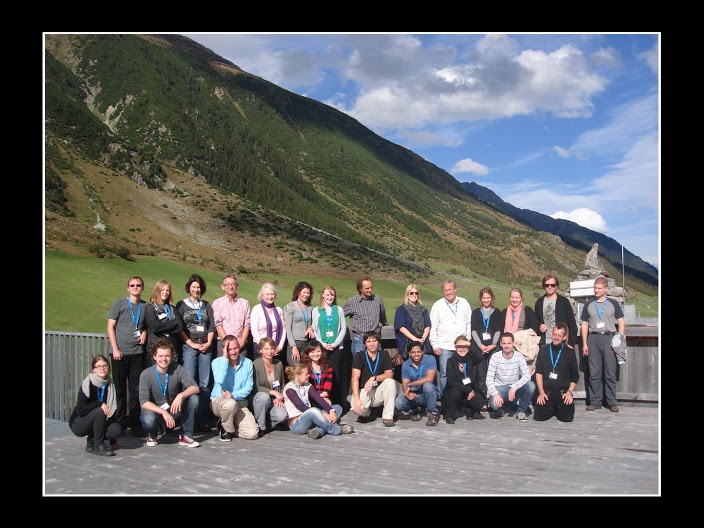
As a matter of fact, the workshop was superbly crafted in order to stimulate the diverse spheres of human comprehension – the intellectual, the social, the aesthetic, the sensorial and even the spiritual (“God is everywhere” was one of the jocose observations made when comparing some concordance results…). The premises, the people and the social programme contributed to the success of the event. The Alpinarium, a unique building comprising an avalanche-barrier and a museum, was the seat of the course sessions, and proved an excellent choice as it featured artistically decorated areas, modern and comfortable seminar rooms, and a spacious eatery serving delicious coffee and snacks. Our first day was honoured by the visit of the mayor who welcomed and introduced us to the history and main facts about Galtür. Also unforgettable were Hotel Post and its owner-cum-sommeiller Franz, who titillated our salivary glands by reading out the tasty evening menus, oozing calories in the best Austrian tradition. To make it all more challenging, sweet Eveline, with teutonic rigour and clockwork organization, arranged a mountain climbing excursion which engaged participants in a four and a half hour trek amid sleet and wind, and a red-and-white Austrian wine tasting five-course & eighteen-bottle gala dinner – wisely, not on the same day. To cap it all, the most adventurous attended the Cheese Olympics over the weekend.
Having had a go at both computational linguistics and lexicography and being conspicuosly interested in lexicology, I may well affirm that the course was not only theoretically soundand practically engaging in all its aspects, but also that it was an excellent chance to network within the lexicographic community. The participants included a very diverse panoply of the word-addict type, among which Slovene, Austrian and Basque-German (!) lexicographers, PhD candidates from Hungary, Ireland, Italy, Poland, Portugal and Spain, Swedish net-businesspeople, a lecturer from Russia, etc. In the few months ensuing the workshop I had the opportunity to revise and expand on some aspects of the Lexicom experience, sharing it with a group of MA students of English who explored the DANTE database, learnt the basics of The Sketch Engine, and tried their hand at creating their own corpora and at using them to compile specialist glossaries.
Being a well-tested course over the years, little improvement is needed. Here follow my few suggestions:
– Participants might be given a list of set readings, stimulus questions and preparatory activities in advance, so that their background knowledge and expectations are brought on a par, to a degree.
– Online pre-course & post-course forums might be added: the pre-course forum would allow participants to introduce themselves and their work so that they already know something of each other and each other’s projects before meeting in person; the post-course forum would allow organizers and participants to keep in touch in a more organized way than what they have been spontaneously doing by e-mail.
– One hitch was that participants had to choose between parallel sessions on either lexicography or lexical computing; maybe filming these sessions and making them available to those interested might be a second-best solution.
– The practical sessions (at least those I attended on computational linguistics) could have been more structured, that is providing a higher number of tasks to choose from, graded along a continuum of difficulty, and accompanied by step-by-step guidance – there were some gap moments when participants would get stuck with their work and did not dare bother the staff; another idea is to match staff & participants in the performance of the exercises/activities.
– A strand for linguistics lecturers/teacher trainers/ language teachers might be added – many of the topics dealt with in the workshop would benefit greatly those interested in data-driven language learning, the lexical approach and challenge-based learning approaches – if the Lexicom team decided to organize such a course they would pay great service to the international language teaching and learning community.
The bottom line is that the workshop provides a good overview of the recent history of English monolingual and bilingual lexicography, its developments and its future perspectives; enables participants to follow the work of scholars and academicians in the field thanks to the approachable but solid background afforded; starts an appetite for more – more knowledge, more practice, more research. I will surely recommend the PhD students of linguistics.
Luisa Bozzo, University of Torino, Italy

